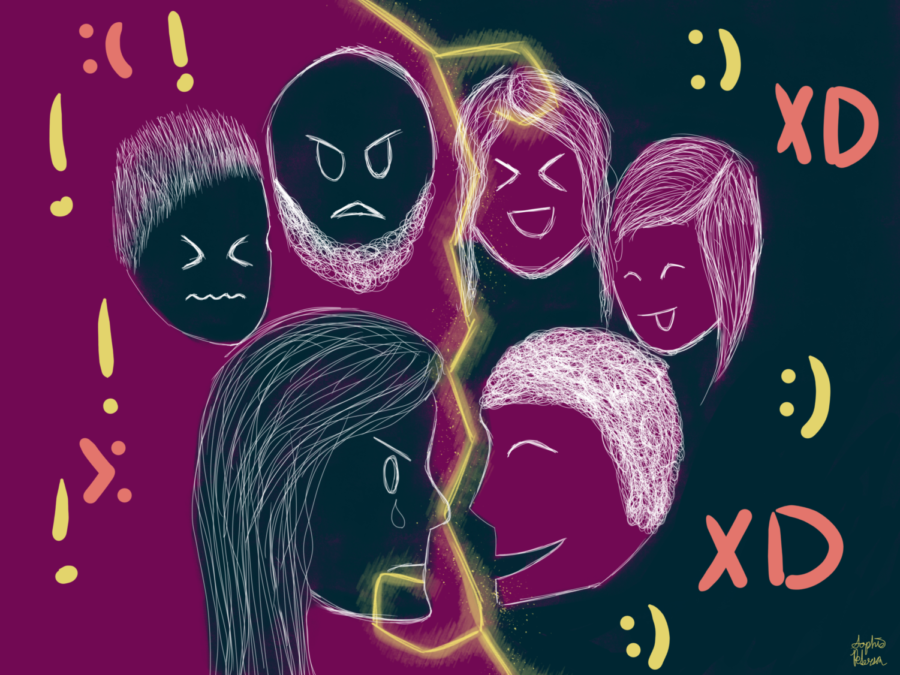Dangers of Dark Humor: When Do Jokes Go Too Far?
February 20, 2019
Jokes are a great way to cope with the stress and pressures of high school. In a group of friends, they create a fun atmosphere and lighten the mood. However, when a joke goes too far, it becomes a problem. Especially regarding touchy subjects like race or religion, it can be difficult to know where to draw the line, and that line can change depending on who you are and who you are with.
Comedians are, more often than not, criticized most for their jokes. Especially in today’s extremely politically charged environment, people are very easily offended by comedic commentary. However, people tend to forget that making jokes, pushing the envelope, and to provoke the status quo is a comedian’s job.
Comedian Daniel Sloss points out how people are quick to condemn comedians, yet accept other media content that is heavily saturated with violence, abuse, and racially-evoked crimes. Sloss wonders, “how come when a comedian says something as a joke it’s offensive but when its acted out in front of you it’s intriguing.” He said, “[people] know the actors on stage are just portraying characters,” and hopes they understand that “so are comedians.”
It’s rather hard to believe that some of the most raunchy comedians – Kathy Griffin, Bo Burnham, and Daniel Tosh, to name a few – are just as provocative in their everyday lives. But ultimately, there has to be a line drawn somewhere.
An important element to consider is the intention behind the joke. If a joke is interpreted as somewhat offensive, but the person’s intention was not malevolent, the teller should simply be informed of his or her mistake, giving them the chance to improve. When the intention is rooted in negative biases and is meant to be hurtful or offensive, that is when a joke crosses the line and should be condemned.
Ray Shehadeh, ‘19, says that “maybe your intentions were good but you never know how other people will see it, or how they will feel.”
Another crucial point behind a joke is the context in which it is delivered. For example, when a comedian is delivering a set, the audience is already primed to expect provocative content. People come to a comedy show because they want a good laugh without having to worry about being politically correct. To the audience, it is clear that jokes are jokes. When quotes are taken out of context, things get dicey.
The Internet, on the other hand, is a madhouse of different opinions, ideas, and tastes. Social media broadens the scope of who sees your jokes. People don’t know who you are, they don’t know about the experiences that you’ve had in your life, and they are simply judging your jokes and comments without any prior context.
Jewish Student Union President Masha Petrosian, ‘20, talks about how she makes “bad jokes about Jews, but with other Jews,” and like a comedy show, the context of the joke shifts its meaning from mean-spirited to self-deprecating. Many people are comfortable with joking about a group if they are a part of that group, but even that is crossing the line for some people.
Ethan Mirman, ‘19, who is also Jewish, speaks out against jokes where “the punchline is the racism.” He explains that “if the thing that makes [the joke] funny is the fact that [it is] racist, that’s bad.”
Many would agree that this applies not only to the hilariously incorrect stereotypes that comedians often make fun of, but the type that makes fun of what a group of people stands for, their culture, and their history. Racism should never be tolerated, under any context.
There is a line between joking about racial stereotypes and racist jokes. Jokes about racial stereotypes often times condemn stereotypes in an amusing way, but racist jokes make fun of a certain group of people for traits that they can’t change or their history. It is our job to call each other out when we notice anything that can be considered offensive in order to help eliminate toxic language in our everyday lives. Humor is important, but so is awareness.






























